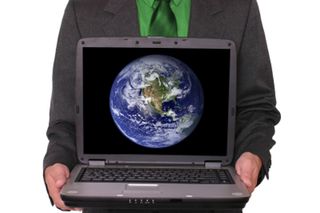IT must help cut emissions, says EU
The European Union has called on the IT sector to step up its game and help other industries use less energy.

IT could help Europe reduce carbon emissions by 15 per cent by 2020 and boost its own bottom line while doing it, according to the European Commission.
While the IT sector itself uses eight per cent of EU energy and creates two per cent of emissions, technology like smart grids and smart metering systems can be applied to other sectors especially buildings, logistics and transport to help them get greener.
The commission called on tech firms to create a common way to measure energy use and emission creation by next year, to help create better data and drive rollouts of new systems.
For example, the EU wants member states to come up with a common smart meter specification by the end of next year, so a rollout to households can kick off by the end of 2012.
It's not just smart meters, however. The EU is also pushing video conferencing and broadband, saying they can keep people from travelling to attend meetings and access public services.
"Making better use of innovative ICT solutions will help us meet Europe's objectives of a low-carbon economy. The ICT sector can show the way to a more sustainable, environmental-friendly growth and give a boost to green jobs in Europe," said Viviane Reding, EU Commissioner for Information Society and Media, in a statement.
"We must seize the chance to lead the way in energy-efficient technologies not only because it is the best way to achieve sustainable cuts in CO2 emissions, but because the ecological potential of these technologies can open up new business opportunities for European ICT companies," she added.
Get the ITPro. daily newsletter
Receive our latest news, industry updates, featured resources and more. Sign up today to receive our FREE report on AI cyber crime & security - newly updated for 2024.
The UK has an EU target of cutting emissions by 12.5 per cent by 2012, while IT firms have signed up for voluntary cuts. BT is looking to slash emissions (per unit of GDP) by 80 per cent from its 1996 baseline by 2020, while Cisco is cutting emissions by 25 per cent by 2012, the EU noted.
Click here to find out if the recession is hurting or helping green IT efforts.




